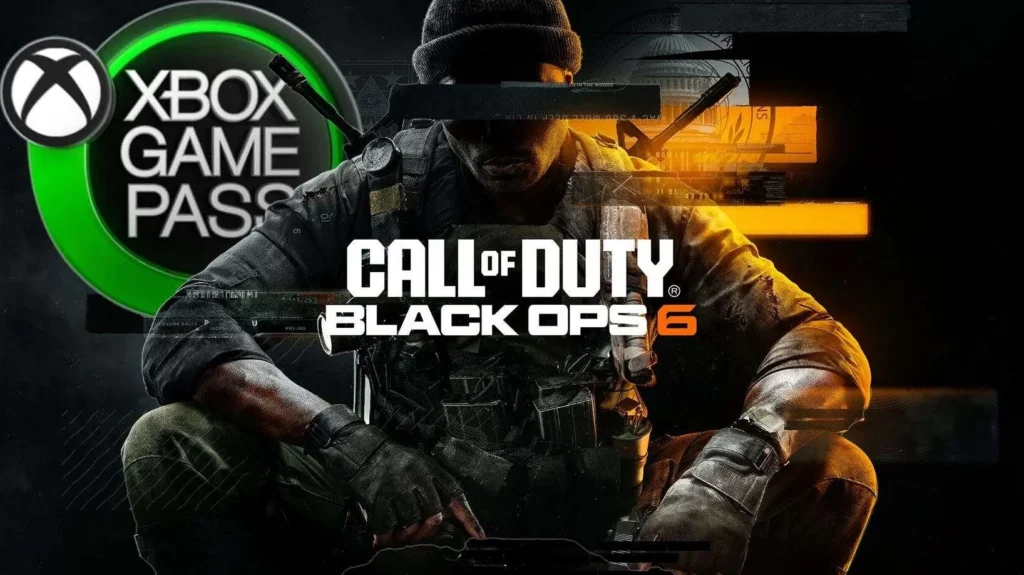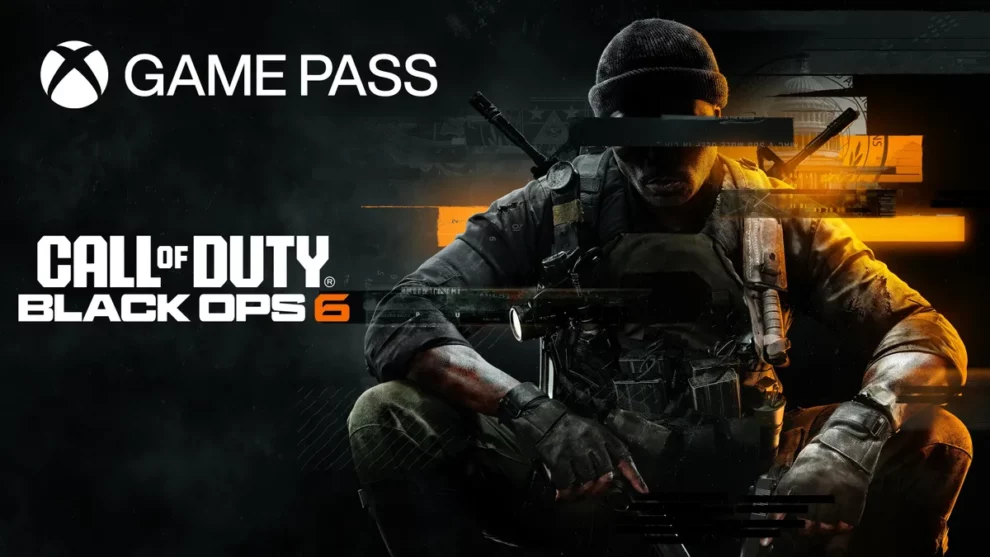The Roots of the Speculation
The idea of Call of Duty becoming an Xbox-exclusive title didn’t just appear out of thin air. It stems from a series of events that began with Microsoft’s acquisition of Activision Blizzard in January 2023. This deal, which cost Microsoft a staggering $68.7 billion, marked one of the largest mergers in gaming history. At the heart of the acquisition was Activision Blizzard’s extensive library, including beloved franchises like Call of Duty, World of Warcraft, and Overwatch.
For many, the acquisition raised immediate questions about the future of these franchises. Would Microsoft use its newly acquired properties to strengthen its ecosystem, particularly on Xbox platforms? Or would the games remain multiplatform, catering to a broader audience? These questions have fueled months of speculation, with some outlets and analysts suggesting that Call of Duty could soon become an Xbox exclusive.

Understanding the Acquisition
To understand why this rumor exists, it’s crucial to unpack the motivations behind Microsoft’s acquisition. Traditionally, Microsoft has lagged behind Sony in terms of exclusive game offerings. While Sony boasts iconic exclusives like God of War and Spider-Man, Microsoft has relied heavily on third-party titles and cross-platform releases. The acquisition of Activision Blizzard changes this dynamic significantly.
By owning Activision Blizzard, Microsoft gains control over some of the most popular and profitable franchises in gaming. Call of Duty alone generates billions of dollars annually, thanks to its massive player base and frequent updates. For Microsoft, making Call of Duty an Xbox exclusive could serve multiple purposes:
- Boosting Xbox Game Pass: Microsoft’s subscription service, Xbox Game Pass, has seen tremendous growth in recent years. Adding Call of Duty to its lineup could attract millions of new subscribers, further solidifying the service’s dominance.
- Enhancing Xbox Hardware Sales: Exclusives are often a key driver of console sales. By locking Call of Duty to Xbox, Microsoft could incentivize gamers to invest in their hardware.
- Competing with PlayStation: Sony’s success with PlayStation exclusives has long been a thorn in Microsoft’s side. With Call of Duty under its belt, Microsoft could finally level the playing field.
However, these benefits come with significant risks. Making Call of Duty exclusive could alienate the franchise’s massive PC and PlayStation fanbase, potentially harming its overall revenue and reputation.
What Does Activision Blizzard Say?
Activision Blizzard’s leadership has been notably silent on the matter, fueling further speculation. In official statements, the company has avoided confirming or denying the possibility of exclusivity. Instead, they’ve emphasized their commitment to delivering quality content across all platforms. This ambiguity has left fans divided, with some believing the silence is a strategic move to keep options open, while others see it as a sign of impending change.
It’s worth noting that Activision Blizzard has already taken steps toward platform exclusivity with certain titles. For instance, Diablo IV is set to launch exclusively on Battle.net, the company’s own digital distribution platform. While this doesn’t necessarily mean Call of Duty will follow suit, it does suggest that Activision Blizzard is open to exploring new distribution models.
The Impact on Fans and Communities
For the millions of players who have grown up with Call of Duty, the prospect of exclusivity raises concerns about accessibility and fairness. The franchise has always prided itself on being inclusive, offering experiences that cater to both competitive esports teams and casual weekend gamers. Locking the series to Xbox could disrupt this balance, potentially alienating players who prefer other platforms.
Moreover, the community aspect of Call of Duty is deeply tied to its multiplatform nature. Friends and rivals alike often play together regardless of their chosen device. If Call of Duty becomes an Xbox exclusive, this camaraderie could be disrupted, forcing players to switch platforms or miss out on shared experiences altogether.
On the flip side, some argue that exclusivity could breathe new life into the series. By focusing solely on Xbox, developers might be able to create more cohesive experiences, free from the constraints of supporting multiple platforms simultaneously. This could lead to improved graphics, smoother gameplay, and more ambitious projects.
What Are the Precedents?
While Call of Duty’s potential exclusivity is unprecedented in scale, there are precedents in the gaming industry that offer insight into how such transitions might unfold. One notable example is the Final Fantasy series, which began as a Nintendo exclusive before transitioning to multiple platforms. Similarly, Resident Evil started as a Capcom property but eventually found its way to various consoles and PC.
These examples illustrate that exclusivity isn’t always permanent. Franchises can shift between platforms depending on market conditions and corporate strategy. However, once a series becomes exclusive, returning to multiplatform status can be challenging, requiring careful negotiation and compromise.
What Do Industry Experts Think?
The gaming community has been abuzz with opinions from experts and analysts. Some believe that Microsoft’s acquisition signals the beginning of a new era for Call of Duty, where exclusivity becomes the norm rather than the exception. Others argue that Activision Blizzard’s history of multiplatform releases suggests otherwise, pointing to the company’s dedication to maintaining a broad player base.
One recurring theme among experts is the importance of timing. Many believe that any exclusivity announcement would likely coincide with a major milestone, such as the release of a new Call of Duty installment or the launch of a next-generation Xbox console. Until then, the future remains uncertain.
The Role of Legal and Contractual Obligations
Understandably, legal considerations play a critical role in determining Call of Duty’s fate. Activision Blizzard’s existing contracts with Sony and other platforms may dictate whether exclusivity is even possible. Additionally, regulatory scrutiny surrounding Microsoft’s acquisition could impose restrictions on how the company handles its newly acquired properties.
Legal experts suggest that Microsoft may need to honor existing agreements before enforcing exclusivity. This could delay any potential changes, giving players more time to prepare for what lies ahead. Furthermore, public backlash could influence Microsoft’s decision-making process, as widespread dissatisfaction could damage the brand’s reputation.
A Look Ahead: What Could Happen Next?
As the dust settles on Microsoft’s acquisition, the future of Call of Duty remains shrouded in mystery. While rumors continue to swirl, the reality is that no concrete announcements have been made. For now, the best course of action for players is to stay informed and engaged, keeping an eye on official statements from both Microsoft and Activision Blizzard.
In the meantime, the gaming world will undoubtedly continue speculating. Will Call of Duty embrace exclusivity, or will it remain a beloved multiplatform franchise? Only time will tell, but one thing is certain: the answer will shape the gaming landscape for years to come.
The question of whether Call of Duty will go Xbox exclusive is far from settled. While Microsoft’s acquisition of Activision Blizzard has sparked legitimate concern among fans, it’s important to remember that nothing is definitive until officially announced. As the gaming industry evolves, one thing remains clear: the power dynamics between platforms will continue to shift, influencing the fate of beloved franchises like Call of Duty.
For now, gamers can only wait and hope that whatever happens, the spirit of competition and collaboration that defines the series will endure. After all, at its core, Call of Duty is about bringing people together—not driving them apart.
















Add Comment